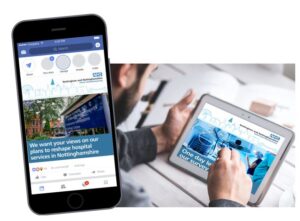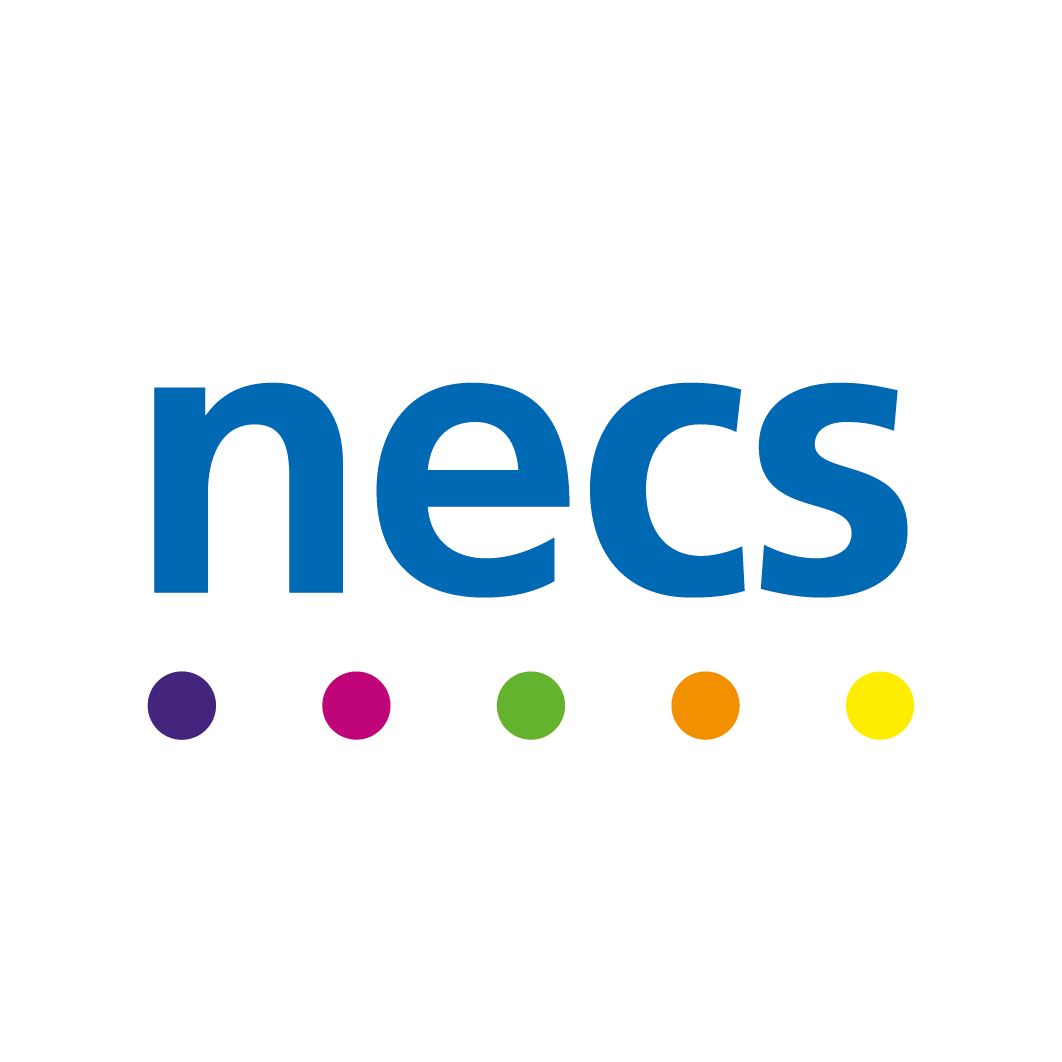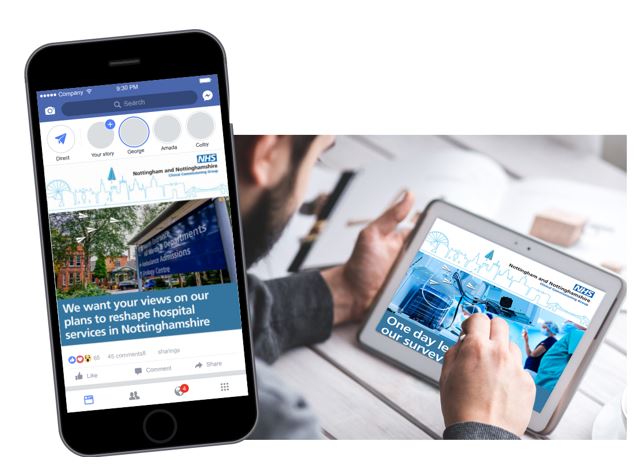Challenge
Nottingham and Nottinghamshire CCG conducted a phase of pre-consultation public engagement over November and December 2020 on proposals to transform hospital services at Nottingham University Hospitals (NUH) NHS Trust.
The programme, entitled Reshaping Health Services in Nottinghamshire, included the need to engage specifically on re-designing acute hospital services to better meet people’s needs and improve people’s health and wellbeing.
This element of the programme was named ‘Tomorrow’s NUH’ and involved all the health and care organisations in the local area working together to begin to develop hospital services that meet the needs of local people now and in the future.
Nottinghamshire had been identified as an area eligible to receive significant additional Government funding for hospital services, including new facilities and buildings. To secure the funding the CCG needed to develop a case for change and a set of options, and with this was a requirement involve local people on what any potential changes might look like.
Feedback from the engagement phase would be considered alongside clinical and financial considerations before developing a final set of options and proposals. These options will form part of a public consultation.
Tasks
NECS was asked to support the CCG by developing and delivering the following public engagement materials and events including a public-facing engagement summary document and stakeholder briefing, including easy-read versions to allow for accessibility.
These key documents were promoted and socialised via a press release, press and Facebook advertising, while digital posters were created to be placed in health and social care and other settings, including websites etc.
The CCG tasked the team with creating ways for people to feedback on the discussions and join the conversation about the future design of acute services. This was done via an online survey, plus paper-based versions and via a range of virtual events which had over a 100 people attend which was event-managed by the team.
The team were asked to do a deep dive into the specific issues with the public via independently moderated focus groups.
Underpinning the information for the public was the creation of a comprehensive and updated frequently asked questions document, available to view at the CCG website.
A short animation designed to create interest was shared on social media.
The team reached out to both local and national NHS organisations, local authorities and other stakeholders to encourage them to endorse the consultation and share the call to action. Professional representative organisations were also contacted to request consideration of the consultation, as were regional MPs.
Progress was monitored on a daily basis with an update report produced and regular project planning meetings held with the CCG. The team monitored an email inbox and responded to telephone calls and social media posts.
Pivotal to the consultation was the opportunity for the public to have their say in person and question commissioning and clinical experts on live events. With Covid-19 restrictions in place the team staged three virtual public meetings and moderated two focus group sessions. More than 60 people attended events.

Outcome
Working within the budget the NECS Communications and Engagement team developed an engagement plan and all associated collateral within a three-week period. This involved liaising closely with the customer and key stakeholders including NUH and Healthwatch.
NECS developed an activity plan which the Communications and Engagement team used to map out all tasks, priorities, timescales, and deadlines. This ensured that the work was carefully project managed throughout, with dependencies identified for individual tasks.
Regular meetings were held with the CCG ahead and during the engagement phase, as well as weekly progress reports produced. Three members of the team worked on the project, each with clearly defined roles and responsibilities.
Consideration was given to the event delivery to ensure the public were all able to access and participate in online discussions, with alternative methods of feedback provided where appropriate.
Focus groups were delivered on specific topics such as maternity, to provide the opportunity to gather rich feedback on targeted areas of patient experience.
NECS produced detailed analysis of the results of the online survey, events and focus groups, as well as feedback gathered via email and social media, to develop key themes, presented via a final engagement report. The CCG was then able to share this report with decision making bodies in order to progress plans ahead of full consultation.


